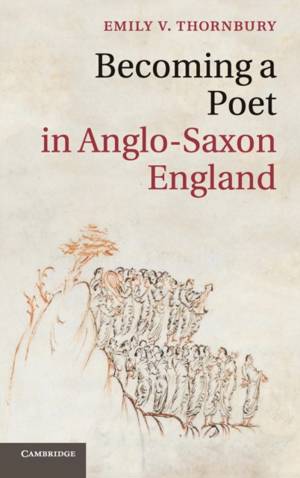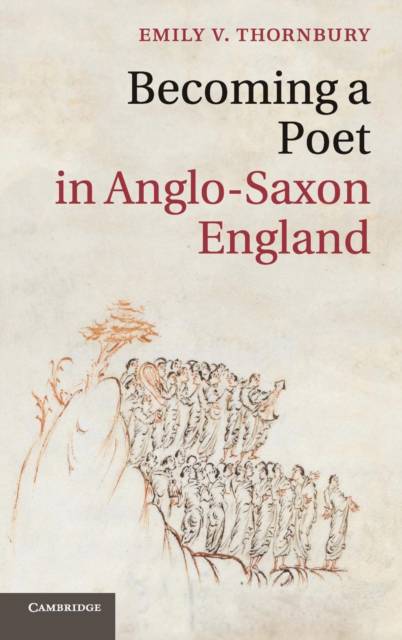
Je cadeautjes zeker op tijd in huis hebben voor de feestdagen? Kom langs in onze winkels en vind het perfecte geschenk!
- Afhalen na 1 uur in een winkel met voorraad
- Gratis thuislevering in België vanaf € 30
- Ruim aanbod met 7 miljoen producten
Je cadeautjes zeker op tijd in huis hebben voor de feestdagen? Kom langs in onze winkels en vind het perfecte geschenk!
- Afhalen na 1 uur in een winkel met voorraad
- Gratis thuislevering in België vanaf € 30
- Ruim aanbod met 7 miljoen producten
Zoeken
Omschrijving
Combining historical, literary and linguistic evidence from Old English and Latin, Becoming a Poet in Anglo-Saxon England creates a new, more complete picture of who and what pre-Conquest English poets really were. It includes a study of Anglo-Saxon words for 'poet' and the first list of named poets in Anglo-Saxon England. Its survey of known poets identifies four social roles that poets often held - teachers, scribes, musicians and courtiers - and explores the kinds of poetry created by these individuals. The book also offers a new model for understanding the role of social groups in poets' experience: it argues that the presence or absence of a poetic community affected the work of Anglo-Saxon poets at all levels, from minute technical detail to the portrayal of character. This focus on poetic communities provides a new way to understand the intersection of history and literature in the Middle Ages.
Specificaties
Betrokkenen
- Auteur(s):
- Uitgeverij:
Inhoud
- Aantal bladzijden:
- 338
- Taal:
- Engels
- Reeks:
- Reeksnummer:
- nr. 88
Eigenschappen
- Productcode (EAN):
- 9781107051980
- Verschijningsdatum:
- 30/01/2014
- Uitvoering:
- Hardcover
- Formaat:
- Genaaid
- Afmetingen:
- 152 mm x 231 mm
- Gewicht:
- 612 g

Alleen bij Standaard Boekhandel
+ 366 punten op je klantenkaart van Standaard Boekhandel
Beoordelingen
We publiceren alleen reviews die voldoen aan de voorwaarden voor reviews. Bekijk onze voorwaarden voor reviews.









